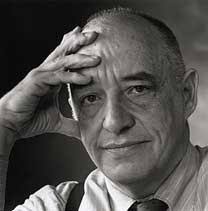Chief Congressional Architect Of Military’s Gay Ban Ends Opposition To Openly Gay Service
Says Benefits of the Draft Would Outweigh Privacy Rights
SANTA BARBARA, CA, – The primary author of the current U.S. policy on gay and lesbian soldiers said today that he supports allowing known gays to serve in the military if the nation reinstitutes the draft, an action he strongly advocates. Northwestern University Professor Charles Moskos, an influential military sociologist who has been widely consulted by policy-makers on military personnel issues, offered his remarks today to researchers at the Center for the Study of Sexual Minorities in the Military, an official research organ of the University of California, Santa Barbara.
“If an open gay said, ‘I want to go into the army,’ it would be his prerogative,” Moskos said. “Of course, there would be problems with that, there would be hassles, but they probably could be overcome.” Moskos, who has been criticized by colleagues and civil rights advocates for his defense of the military’s anti-gay policy, acknowledged that his support for drafting gays might appear to undermine the rationale for banning openly gay soldiers. But he said the draft was a “higher virtue” than the privacy rights of straight soldiers, which he has frequently cited in his opposition to letting gays serve openly with straights. He added that instituting the draft would require ending all forms of the gay ban. “You can’t use a gay ban with a draft because that would make it too easy for people to get out,” he said.
In addition to his support for drafting gay soldiers, Moskos recently outlined a broad proposal for homeland security that would include open gays, and which he said “could easily maintain concerns over privacy.” In this month’s issue of Washington Monthly magazine, Moskos co-wrote an article calling for military-style armed personnel to guard water supplies and power plants, to patrol borders and coasts, and to oversee immigration and airport security, among other domestic security responsibilities. “I don’t think ‘don’t ask, don’t tell’ would be applicable to homeland security,” he said, suggesting that many of the military duties of the new century may not require the same constraints on gay service members as in the past.
Professor Moskos has long supported bringing back the draft. He argues that the nation will get higher quality soldiers and that Americans will only tolerate casualties in the long run if all citizens, including elites, participate in military service. But he noted that the return of conscription is not likely to happen any time soon. “I don’t know of a single politician who supports the draft,” he said, adding that the most effective way for gays and lesbians to win equality in the military might be to throw their support behind the draft.
